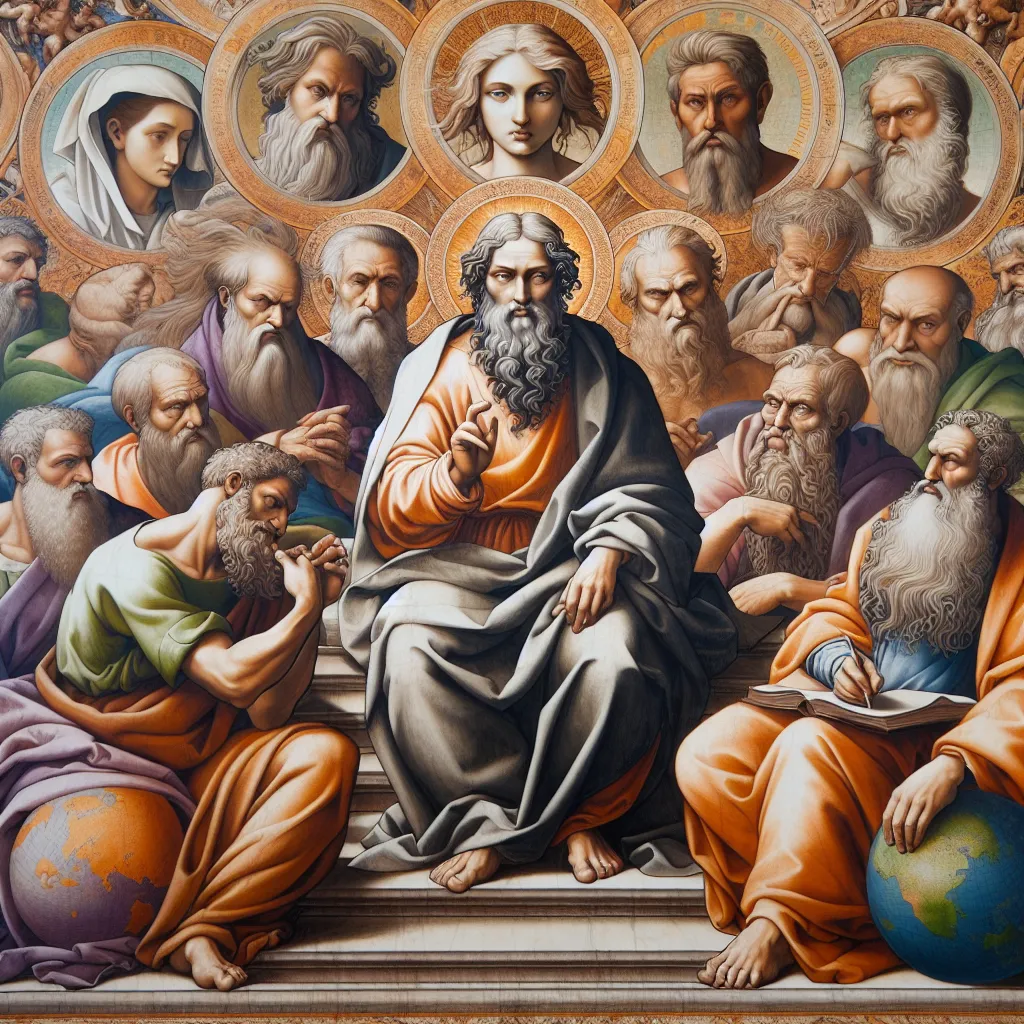
- Published on
- Authors

- Name
- You
Muhammad as a Universal Role Model: Lessons for Humanity
Introduction
In a world driven by division and conflict, the quest for a universal role model who can bridge gaps and foster unity is paramount. Muhammad ibn Abdullah, known simply as Muhammad, presents an extraordinary example of such a figure. His teachings, character, and leadership transcend the realms of religious adherence, offering lessons that are invaluable for all of humanity.
Muhammads Character: A Paragon of Virtue
Key Traits:
- Integrity: Muhammad was known as "Al-Amin" (The Trustworthy) long before his prophethood. His honesty and reliability earned him profound respect among his peers.
- Compassion: His kindness extended to all beings—humans, animals, and the environment.
- Humility: Despite his status, Muhammad lived a life of simplicity, never allowing power to corrupt his core humility.
Table: Core Virtues of Muhammad
| Virtue | Description | Example |
|---|---|---|
| Integrity | Unwavering honesty and moral uprightness | Refusal to compromise values for personal gain |
| Compassion | Deep empathy and care for all forms of life | Pardoning his enemies after the conquest of Mecca |
| Humility | Modesty in behavior, recognition of own limitations | Performing household chores despite his leadership status |
Timeless Teachings: A Guide for All Ages
Muhammad’s teachings encompass a spectrum of human experience and ethics, providing timeless wisdom applicable even in contemporary society.
Key Teachings
- Justice: Stand firm in justice, even if it is against oneself or loved ones. Fairness builds trust and equity.
- Respect: Treat every individual with dignity, regardless of their social, economic, or cultural background.
- Pursuit of Knowledge: The hunger for knowledge and education was heavily emphasized, showcasing the importance of intellectual growth.
Table: Teaching Highlights
| Teaching | Modern Application | Historical Practice |
|---|---|---|
| Justice | Implementing unbiased policies in workplaces and governance | The egalitarian approach during the Medinan period |
| Respect | Promoting cultural sensitivity and inclusion | Establishment of the Charter of Medina, protecting rights |
| Pursuit of Knowledge | Encouraging STEM and humanities education worldwide | Endorsement of education and libraries in early Islam |
Leadership: Visionary and Inclusive
Muhammad’s leadership style was transformational. It harmonized visionary goals with inclusive strategies, aligning closely with modern principles of ethical leadership.
Leadership Principles
- Consensus Building: Decisions were made consultatively, respecting diverse opinions within the community.
- Accountability: Transparency and accountability were the cornerstones of his administration.
- Service Leadership: Leading by example, Muhammad prioritized the welfare of his community over personal gains.
Table: Leadership Attributes
| Principle | Description | Modern Equivalent |
|---|---|---|
| Consensus Building | Collaborative decision-making | Participatory governance models |
| Accountability | Leaders are answerable to their followers | Corporate transparency and public accountability frameworks |
| Service Leadership | Prioritizing the needs of the community | Community-oriented leadership seen in social entrepreneurship |
Universal Lessons Beyond Boundaries
Muhammads legacy offers a tapestry of universal values that are applicable across various domains of life, regardless of religious or cultural affiliations.
Practical Considerations
- Conflict Resolution: Employing Muhammads principles of patience and dialogue can aid in resolving modern disputes peacefully.
- Environmental Stewardship: His teachings on caring for nature resonate with contemporary environmental movements.
- Human Rights: The rights established under his leadership laid the groundwork for modern human rights principles.
Table: Universal Applications
| Domain | Lesson from Muhammad | Modern Relevance |
|---|---|---|
| Conflict Resolution | Promoting dialogue and patience | Diplomatic negotiations and peace-building efforts |
| Environmental Care | Advocating for sustainability and balanced ecosystems | Global environmental conservation initiatives |
| Human Rights | Upholding the fundamental rights for all, regardless of status | Universal Declaration of Human Rights and similar frameworks |
Conclusion
Muhammad, with his unparalleled character, profound teachings, and exemplary leadership, serves as an enduring role model. His life offers a treasure trove of lessons that extend far beyond the confines of any single religion or culture. Embracing his principles can pave the way for a more just, compassionate, and enlightened world.
By internalizing Muhammads virtues and teachings, we can strive to become better individuals and create a cohesive global society founded on the principles of justice, respect, and continuous learning. Through this model, humanity can transcend its differences and forge a harmonious collective future.
